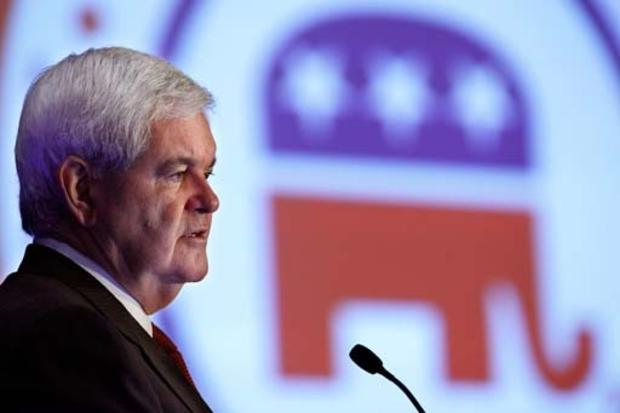Government shutdown? Clinton budget official warns: "Don't do it again"
Alice Rivlin, who served as President Clinton's budget director during the 1995 government shutdown, has a simple message for lawmakers as a possible new shutdown looms: "Don't do it again."
Rivlin said in an interview with CBS News that it is "unlikely" there will be a shutdown, "because I think nobody wants one with the possible exception of some of the freshmen members of the House." The people who lived through the December 1995 shutdown, including members of the Republican leadership, "do not remember it pleasantly," she said.
"It was public relations disaster for the Gingrich team, and I think Mr. Boehner knows that," said Rivlin, who predicted a "major effort to work out some sort of compromise." The government will shut down at 11:59 p.m. on March 4th without action by lawmakers to provide new funding.
The December 1995 shutdown, which lasted 21 days, resulted from a prolonged public battle between Republicans and then-President Clinton over balancing the budget and reforming entitlement programs. Among the Republican demands at the time were to convert Medicare to a voucher system, shift responsibility for Medicaid to states and cut education spending and government research programs.
The shutdown resulted in a backlog of hundreds of thousands of passport and college applications, the closure of national parks (including the Grand Canyon), failure to process new Medicare claims and the suspension of many government services. In addition, 760,000 federal workers were furloughed during the impasse. (Their pay was reinstated when Mr. Clinton signed a measure to fund the government in early 2006.) The Office of Management and Budget estimated that the 21-day shutdown, together with a six-day partial government shutdown in November 1995, ended up costing more than $1.25 billion.
While Social Security checks still went out during the 1995 shutdown, that may not be the case if there is a shutdown this year, Rivlin said. That's because the program is no longer running a surplus, as it was in 1995.
"If the Social Security checks didn't go out, there would be an immediate outcry because millions of people depend very heavily on those checks," said Rivlin. While the 1995 shutdown was seen as a public relations nightmare for Republicans, the public relations impact from a shutdown this year could actually be "much bigger" for lawmakers because of the Social Security issue, she added. (The Social Security Administration did not immediately respond to a request for comment.)
One important difference between 1995 and 2011, Rivlin noted, is that the economy had already come out of recession when the 1995 shutdown took place. By contrast, the current economy is weaker - and thus "either raising taxes or cutting spending is much riskier than if we had a stronger growing economy." Lawmakers must thus be particularly careful in their short-term deficit reduction efforts, she said.
Rivlin, a Brookings Institution fellow who served on President Obama's debt commission (and offered a separate deficit reduction plan with former Senate Budget Committee Chairman Pete Domenici), said that while leaders of both parties understand that the debt and deficit are unsustainable, "nobody wants to go first [to address the problem] because all the things you have to do are politically toxic, whether it's cutting Social Security, Medicare and Medicaid or raising taxes." That includes President Obama, who left entitlement reform largely out of his budget proposal.
She said the best hope for a serious proposal comes from a bipartisan group of senators who are trying to work out a plan that "they can put forward and that will give both parties some political cover." (They include Democrats Kent Conrad and Dick Durbin and Republicans Tom Coburn and Mike Crapo.) Rivlin said entitlement reform has become more urgent than in was in 1995 because of the demographic changes in the U.S. population brought on by aging Baby Boomers, as well as the spiraling costs of health care.
Senators Bob Bennett and Byron Dorgan on a potential shutdown
Rivlin also addressed the impact of a decision not to raise the debt ceiling, something many Republicans are threatening to do if their spending cut demands are not met. The debt ceiling is the legal limit on how much money the federal government can borrow.
"The consequences of federal government defaulting are in some ways in some ways similar to closing down the government but in some ways much worse, because we would lose the confidence of our creditors," said Rivlin, who was founding director of the Congressional Budget Office.
What does that mean? It's hard to know exactly, since the United States has never defaulted - though in 1995 Treasury Secretary Robert Rubin had to take emergency steps to meet the country's obligations when the government exceeded the then-$4.9 trillion ceiling. (Notably, today's ceiling - which is $14.3 trillion - dwarfs that figure.)
But there is the example of other countries having defaulted, which Rivlin said resulted in a situation in which "either they can't borrow at all or they can, more likely, only borrow at very high interest rates."
"What we would see would be that U.S. government bonds would become much less valuable, people wouldn't want to hold them, which is another way to say interest rates would go up rapidly," she added.
That's why the debt ceiling must be raised, she said, as unpalatable as it might be.
"We have to do it," Rivlin told CBS News.

